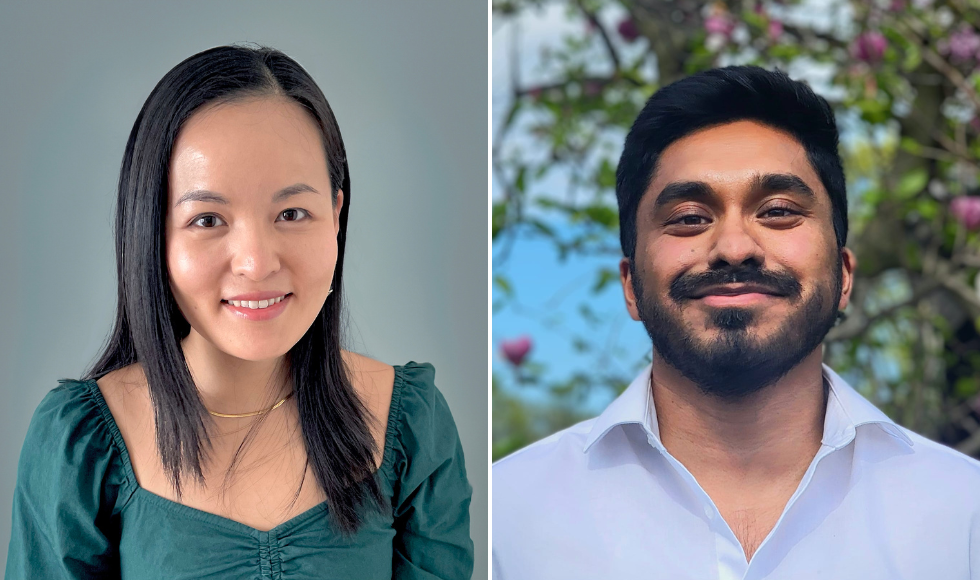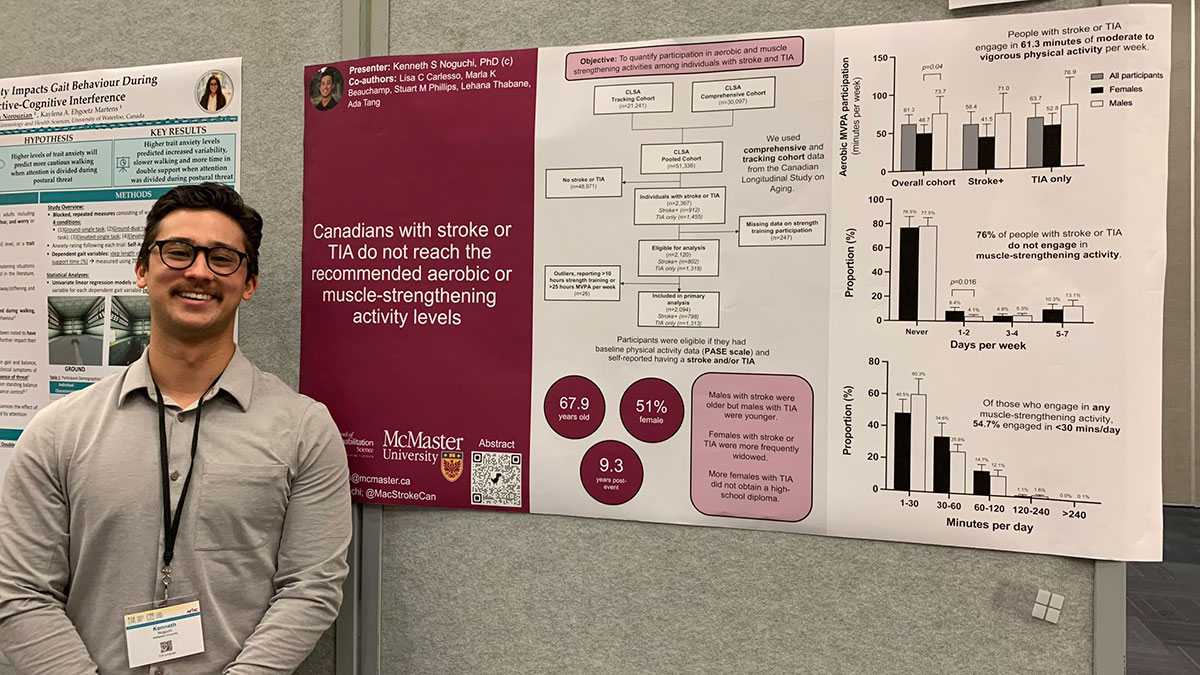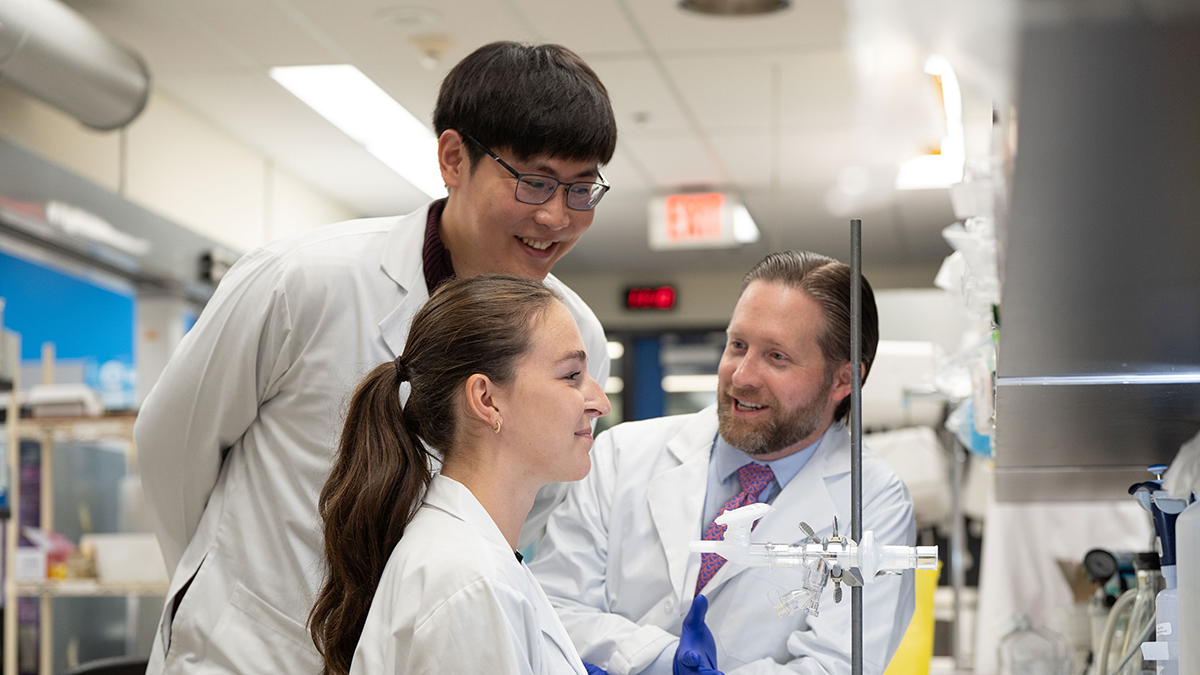McMaster’s first Integrated Rehabilitation & Humanities students reflect on new beginnings

With the start of a new school year, it is a time of new beginnings for many. But for nearly 30 McMaster University students, that feeling of new beginnings is amplified as they start their studies as the university’s first cohort of the Integrated Rehabilitation and Humanities (IRH) undergraduate program.
The program is the first-of-its-kind globally and is offered through a unique collaboration between McMaster’s Faculty of Health Sciences and the Faculty of Humanities where students will earn a Bachelor of Health Sciences degree in Integrated Rehabilitation and Humanities. The curriculum involves a unique blend of coursework that reflects the complex nature of health and well-being.
Students in the inaugural cohort were asked to reflect on their motivation to apply to the IRH program and their hopes for their studies and future careers. Below is a selection of those reflections:
“As a disabled student, I’ve noticed that a lot of health-care spaces don’t really include our perspectives and see us only in the role of being a patient. For me, the IRH program was an opportunity to learn and interact with a curriculum that is cognizant of that historical bias, and to contribute to bringing disabled voices to the table. Being able to look at the Humanities and history of health care through a critical lens means being able to provide care that sees both patients and practitioners as more than just datapoints. I believe that health care is inherently tied to the humanities, and that effective care systems require us to learn from our past in order to look towards the future.”
– Yameena Zahid
“I aspire to be a doctor one day, a role and responsibility that requires the ability to interact and connect with others and the world around me. The IRH integrates those core values of mine in such a beautiful program where I have the opportunity to learn about others, to learn to value others because at the end of the day the responsibility of a doctor is not just to heal, but to recognize that you are helping an individual with a whole world. The IRH program teaches us the core principles and values of caring for others and integrating it so well into the rehabilitation and health science field.”
– Ruth Nahmad Hamui
“I spent first year struggling with an identity crisis and questioning whether I deserved to be in school, what I was here for, what my purpose is; I didn’t find a program I fit into or that aligned with my morals and interests. I felt so out of place until I discovered what this program is, and I felt instantly drawn to it and the fact that this program emphasizes the importance of being a good person within the medical industry. It’s so important to know how to speak to patients, how to be empathetic and kind, while delivering quality care to patients.”
– Harleen Kaur
A unique journey across disciplines
For Brenda Vrkljan, the program’s director and a professor of Occupational Therapy in the School of Rehabilitation Science, the goal of this degree is to graduate professionals who are better able to address the health, social, and human needs of individuals and their communities.
“Health is a complex phenomenon – by working across disciplinary boundaries from basic science training in anatomy and physiology, to understanding what matters most to people, their families and to communities, we will graduate learners who not only see the big picture but are outstanding team players and communicators,” says Vrkljan. “Their contributions will be vital in shaping a more inclusive and empathetic approach to health and human services.”
Two aspects of the IRH program that students consistently expressed excitement about were smaller class sizes and the experiential practicum. In its inaugural year, 30 students were welcomed to the program, with the vision to grow in future cohorts. The goal is to meet the ever-changing health needs of our communities, while maintaining small group-learning, a priority for the Faculty of Health Sciences. In their third year, students will participate in a 60-hour supervised placement where the focus will be on serving the community while also learning hands-on, practical skills. Students will then bring learnings from their practicum back to the classroom, which will add depth to ongoing discussions regarding health and the humanities.
“We’re thrilled to welcome the very first Integrated Rehabilitation and Humanities cohort onto campus this fall,” says Pamela Swett, dean of the Faculty of Humanities. “They are embarking on a unique journey – one that will help them grasp the complexities of health and well-being with creativity, empathy, curiosity, and a fundamental understanding of what it means to be human. I can’t wait to see what this pioneering group of students is able to achieve.”
Learn more about the IRH program and applications for the next cohort on the program’s website.
Related News
News Listing

Daily News ➚
Two exceptional graduating students awarded prestigious Governor General’s Academic Gold Medal
Education, School of Nursing
13 hours ago

Three degrees & a wedding at The Phoenix. This grad reflects on a decade at McMaster.
Education, Feature, School of Rehab Science
3 days ago

McMaster-affiliated non-profit gifts $300,000 to Global Nexus to support pandemic research
Collaborations & Partnerships, Research
6 days ago
